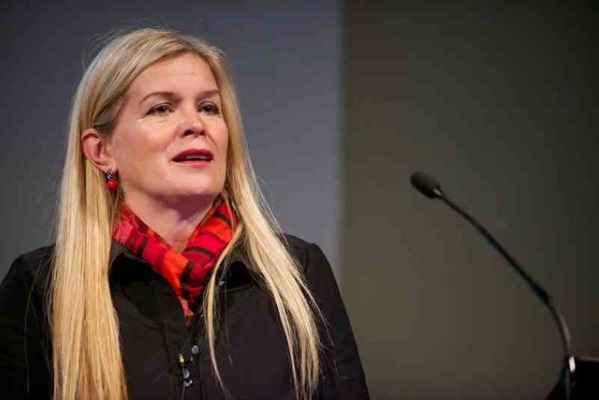
A series of future-looking public talks emerging from creators of participatory, immersive and interactive experiences. These debates will examine topical issues for the VR, AR, XR, immersion, arts and gaming sectors in terms of sustainable and ethical processes, exploring approaches to the production and usage of such outputs, and within the content of the work itself.
The DATUM R&D project is investigating, through shared research, debate and the creation of AR and audio-led gaming apps, new technological and artistic models that could aid sustainable consumption, enable the protection and ethical use of personal data, and generate new ways of relating to other humans, locally and globally.
Across this last year of global pandemic, it has become totally clear that the technologies of our times have permeated into most aspects of our lives, becoming an inescapable part of our work, education, homes, health and leisure time. Public concerns regarding the collection and usage of our personal data, often harvested around us without our knowledge, have come to the surface. Health data pooling, required to combat the virus, is gathered through contact tracing apps, and digital vaccine passports are in global debate. This has increased awareness of the positive and negative consequences of such data gathering, already amplified by the media coverage of the increasing deployment of AI enabled facial recognition, surveillance cameras, biosensors and location trackers.
There is a lack of public debate on the usage and the sustainability of such data gathering, and how this behavioural data is monetized (through business-to-business data sales) for the prediction of future consumption and on the role of corporations in leading sustainable practice. Additionally, this debate is not highly prevalent in the creative industries, in particular in the immersive gaming, entertainment and arts sectors who gathering biometric data (physical, behavioural and physiological traits such as voice, gesture, gaze, gait, motion, facial expression, location etc) for use in the analysis of immersion environments for ongoing revenue streams through in-business sales. Discussions will include the emergence of new frameworks through which we start to blur the boundaries between the recreational and the functional.
This series of panels aims to activate this debate about the emerging sustainable options with an aim to find win-win solutions between all involved – the user and the creator, the individual and the business sector.
Speakers from a diverse range of backgrounds – creative industries, academia, policy, culture and business – from the UK and internationally, will join us to explore these topical and important issues online. Speakers will be added to the information as confirmed.
#NUDGEPUSH21
In today’s data-driven world, consumers are active parts of the supply chain: prosumers. At the same time though, they are treated as passive consumers, whose behavioural patterns are observed (surveillance capitalism) with a view to market products and to maximise profit (nudges – behavioural economics).
Technology can be proven to be a valuable tool towards the direction of ethical consumption enabling social change. It could further provide an accountability mechanism (ethically and legally) for everyone involved in the supply chain.

Chair: Dr Olga Martin-Ortega, Professor of International Law, University of Greenwich
Olga is Professor of International Law at the School of Law, University of Greenwich, where she leads the Business Human Rights and the Environment Research Group (BHRE). She has been researching business and human rights for two decades. Olga is a member of the Board of Trustees of Electronics Watch and the Corporate Justice Coalition UK and a member of the Board of Directors of the London Universities Purchasing Consortium. She works with the Modern Slavery Prevention Unit of the UK Home Office, other governments and international organisations, including the ILO and the OSCE training public sector buyers, producing professional guidance and supporting them in their development of human rights due diligence in their supply chain and modern slavery reporting. She has advised the EU Parliament on mandatory human rights due diligence regulation. She works as part of the Un/Archived Textiles team.

Co-Chair: Eva Pascoe, Director of Ecommerce, The Retail Practice / Chair of Cybersalon
Ecommerce Director at TheRetailPractice.com, Eva has been leading on the fashion transition to online world since 2000, when she set up Topshop.com. She is currently Interim CTO for a sustainable lingerie brand Bluebella.com. She also advises on digital marketing/IT to many growing sustainable fashion brands in UK and Holland, working to develop post-lockdown comeback in a more Earth-friendly way. Eva has also co-funded world’s first Internet Café ‘Cyberia’ back in 90s. Since then, she has led the campaign for GDPR for improved online privacy, arguing for the balance between convenience and personal data protection. To focus this campaign, in 1997 she has co-founded Cybersalon.org, hackers and researchers group that advises on Digital Rights.
Via her consulting company TheRetailPractice.com Eva is leading on sustainability transition for legacy brands, introducing robotics into supply chain. As industry advisor to Middlesex Uni BA in Digital Media, Eva is also involved in research on VR in fit in fashion and virtual fashion in gaming. In 1998 she had a cameo appearance in the first VR Nightclub (Philips), for which she designed her own VR jumpsuit.

Dr Argyro Karanasiou, Senior Lecturer in Law, University of Greenwich
Dr Argyro Karanasiou is the Director of LETS Lab (Law, Emerging Tech & Science) and a leading expert in Information Technology Law. Her work has been at the forefront of fostering ‘law and emerging technologies’ as a sub-field of legal and transdisciplinary scholarship and has earned her visiting research affiliations with Yale Law School (ISP Alumna), NYU Law (ILI Alumna), Harvard Law(affiliate Faculty staff CopyX), Complutense Madrid (ITC). She is actively involved in several technology policy and related initiatives and has contributed invited expert insights on a number of occasions, most notably for the Equality and Human Rights Commission (AI in recruitment – 2020), the Chatham House (Internet Governance – 2018), the US Air Force (AI & Augmented Cognition – 2018), and the Royal Society (Machine Learning – 2016), the Electronic Frontiers Foundation (Free Trade Agreements and Human Rights – 2016), the Council of Europe (regional South Eastern Europe expert in Media – 2014).

Ingrid Karikari, Digital Consultant and StrategistIngrid is an experienced, versatile Digital Consultant and Strategist with a 20-year history of working on public, private and third sector digital projects. She is passionate about creating digital products and services that empower, enrich and transform. She has worked on AI projects in this context and is very excited by the possibilities that AI and emerging technologies present.Ingrid collaborates with a number of organisations and groups focused on innovation, Digital and AI ethics and humane technology, such as Cybersalon – https://cybersalon.org/, We And AI – https://weandai.org/ and Firesmoke – https://www.firesmoke.co/. She is an unapologetic lover of fashion and a believer in ethical consumption.

Michaela Larosse, Head of Content & Strategy, The Fabricant
Michaela Larosse is Head of Content & Strategy for The Fabricant, the world’s first digital fashion house. The Fabricant’s garments are always digital, never physical, and for use purely in the digital realm. The company is focused on establishing a new non-physical industry, which creates a more innovative and sustainable fashion future – their pieces waste nothing but data and exploit nothing but imagination. With a background as both a features writer and conceptual creative for the advertising industry, within her role at The Fabricant Michaela shapes its brand philosophy, conceptual storytelling and creative strategy.